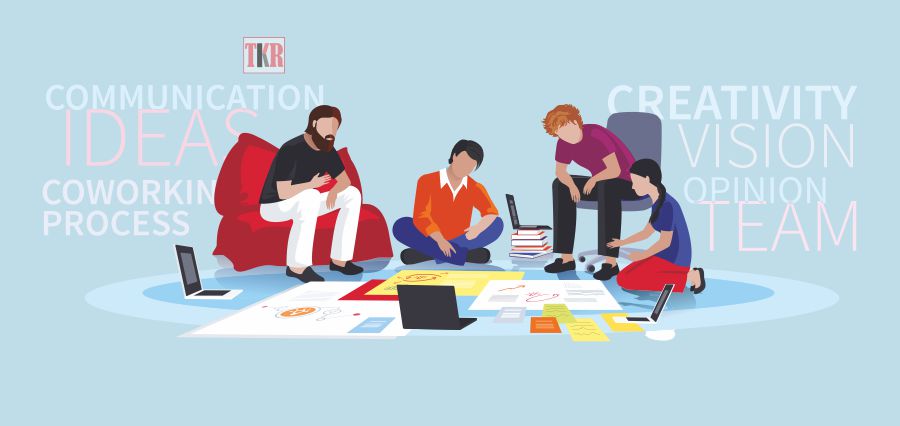In many organizations, people are occupied with non-stop, activity-filled workdays, which seem to be never ending. As a result, both employees and employers are constantly busy, focused on projects, budgets, detail, and deadlines. However, as an unfortunate side effect of demanding and dedicated work lives, it has become difficult to develop and maintain better workplace relationships. Eventually, people lose focus on how important the quality of workplace relationships is to ensure personal and professional development. Hence, it is essential for authorities to spend some time exploring the obstacles towards building positive workplace relationships. Authorities may feel that it is a difficult task, but they should realize that things can be simplified by following the procedure of asking for feedback.
Role of Leaders in Maintaining a Productive Environment
For excellent outcomes, it is essential that leaders and managers need to be self-aware and take steps accordingly. Asking for honest feedback from colleagues and employees will help them to realize their flaws and blind spots and help them in enhancing workspace relationship and improve productivity at the same time.
Exploration is Essential
Exploring the employees’ abilities, their strengths, and weaknesses can be one of the most powerful and valuable efforts to organizational upliftment. Leaders can employ various strategies to gather information and understand what others think about them. In order to do so, they can ask three people to provide feedback about them. They should select such people who would speak honestly- a manager, a team member, peer, and so on. Then, these leaders can seek out individuals who interact with them on a regular basis, or have a working relationship. It is important to make sure that at least one of them is someone, with who whom they are experiencing some type of conflict.
It is essential to ask questions directly related to work, work environment, and working relationships. Maintaining a serious approach in this procedure is of utmost importance, as it is a personal and professional growth exercise and will be beneficial for the entire organization. The prime focus of this activity is to get a proper understanding of how the employees and colleagues perceive the leader and their actions and decisions.
Sometimes it becomes uncomfortable and difficult for many employees to ask for and provide feedback. This becomes worse if both parties are in a reporting relationship and it becomes important not to react to anything that is said to them. The prime focus, in this case, is to listen and assess properly. Accordingly, the leader should focus on what the person is saying, rather than analyzing the situation mentally- something that requires strength, courage, and self-discipline.
Ensuring Effective Conversation
Proper communication can bring better solutions to any given problem. Scheduling meetings at mutually-convenient time and place that is safe and comfortable can be of much use. Authorities should make sure that the session is devoid of any distractions and time is spent on productive conversations and activities.
Leaders can ask the employees to contribute some time in productive interactions, wherein, they can ask for feedback on their performance. They must stress on the fact that it is essential to be open in a corporate environment. This will allow the employees to express themselves freely, provide their opinions about how things are going in the organization and give suggestions on how to improve working relationships.
Leaders should make it clear that they want the employees to be totally frank with them, and they are interested in what they have to say. They should create an environment of openness and honesty, which would be conducive for growth and development of not only the employees, but the organization as well. Performing some deep breathing, stretching, visualization, or other relaxation exercises before conducting any meeting with the employees can contribute towards achieving better outcomes. Constantly maintaining a positive attitude and dealing with every situation with a calm mind can help them to focus on the task at hand.
Behavioral Considerations
Leaders should make sure that every employee feels comfortable while working in the company. They should participate wholeheartedly towards achieving its objectives. Accordingly, they should behave with the employees with utmost respect and ensure that each individual has their personal goals aligned with the organizational goals. In case of any dispute, if the leader is at fault, then they should not make excuses, defend themselves, or try to argue. Instead, they should realize their mistakes, rectify the same, and apologize to the employee for any misbehavior or dispute.
If the employees are performing well, leaders should thank and appreciate them for their endeavors. They should reward them for their achievements, which would motivate them to achieve bigger objectives. Leaders should also spend some time on self-reflection, as it will drive them towards professional and personal growth. They should take some time to identify certain areas that they deem important for further exploration, areas they need to work on.
It is important to assess how these personal/ professional growth areas can relate to training needs, behavioral change, skill development, and so on. Leaders should select individuals who can support them to take action and move forward to enlist their support. These individuals can play the role of a coach, training specialist, in-house resource, and so on.
Making the Connection is Important
The concerned authorities should meet and interact with the employees. They should discuss what these individuals have discovered about themselves and create a program of action steps. Leaders should take necessary steps to support them with the same. Accordingly, they should check goals to achieve and set milestones which need to be accomplished on a regular basis.
This is an effective feedback and exercise system, which will help in professional and personal growth of the employees, while ensuring success of the leader as well. It will also act as a supportive tool to create ever-effective workplace relationships, which will enhance the effectiveness of various teams and lead them towards excellence and prominence.









